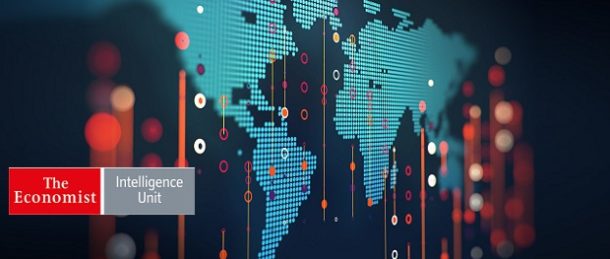
Over the last decade, the banking landscape has been irrevocably changed. Digital disruptors, new technologies, new regulations and increasing customer demands mean banks have had to adjust their business models to deal with these new market challenges.
Between January and March 2019, 405 global retail banking executives were surveyed by The Economist Intelligence Unit on behalf of Temenos. They were asked about the changes taking place in their industry to 2020 and 2025. One of the key points from this year’s survey is that new technologies are more important than customer demands and regulation, for the first time in its 6-year retail banking survey history .
Retail bank executives are refocusing their innovation strategies with 36% looking to build a greenfield digital bank. Banks are also now pursuing more proactive open banking strategies by preparing for digital business model evolution; 41% are seeking to act as a true digital ecosystem, and 28% are offering their own and third-party banking and non-banking products and services according to an in-depth survey conducted by the Economist Intelligence Unit (EIU) on behalf of Temenos, the banking software company.
The report, the sixth in a series written by the EIU for Temenos, entitled „A whole new world: how technology is driving the evolution of intelligent banking”, offers a global investigation into the strategy drivers and digital investments of retail banking executives. It highlights that new technologies such as AI, open APIs and cloud are driving banks towards advanced data and analytics. Banks are using these to develop compelling propositions and experiences for their customers while keeping their money and their data safe. The full global report will be published at the end of May 2019.
Max Chuard, Chief Executive Officer at Temenos, said:
„As the report highlights, forward-thinking banks are aiming to capitalize on open banking through progressive digital strategies, to become aggregators or build digital banks. To truly differentiate, banks need to modernize their end-to-end stacks, embrace agile deployment methodologies and adopt cloud-native digital banking software. Temenos has the winning combination of packaged functionality and revolutionary cloud agnostic technology which dramatically reduces the cost of deploying software, providing banks greater agility and accelerating the speed of innovation.”
Renée Friedman, the editor of the report from the Economist Intelligence Unit, added:
„The banks realize that, in the longer term, their biggest competition may come from partnerships between tech giants and fintechs. To remain competitive, they will need to prove that they are safer in terms of their customers’ private data and security if they are to retain their customers’ trust and loyalty.”
The key findings of the survey show:
. New technologies like AI, machine learning, and blockchain have replaced changing customer behavior and demands as the key driver of strategic thinking at banks around the world in both the short and longer terms.
. While banks are preparing to launch an open banking strategy by 2025, they remain focused on improving product agility and mastering digital marketing and engagement in the shorter-term, to 2020.
. Banks are still looking to work with fintechs with 56% of respondents saying that fintech-bank collaboration in sandboxes will become mainstream by 2025.
. AI is becoming a key part of the new technology mix, with respondents thinking its most valuable use will be in improving the user experience through greater customer personalization and 61% thinking AI will create better value for customers by 2025.
. However, 44% think customers’ biggest concerns related to AI are uncertainty about security of their personal information. This may explain why investment in cybersecurity is the top focus of banks’ digital investment (39%) and 68% believe regulators will tighten cyber security authentication protocols by 2025.
About the survey
The Economist Intelligence Unit surveyed 405 global banking executives about the challenges retail banks expect to face between now and 2020 and 2025, and the strategies they are deploying in response. 46% of respondents were at C-Suite level. Respondents came from Europe (25%), Asia-Pacific (25%), North America (18%), Latin America (16%) and Africa and the Middle East (16%).
Banking 4.0 – „how was the experience for you”
„To be honest I think that Sinaia, your conference, is much better then Davos.”
Many more interesting quotes in the video below: